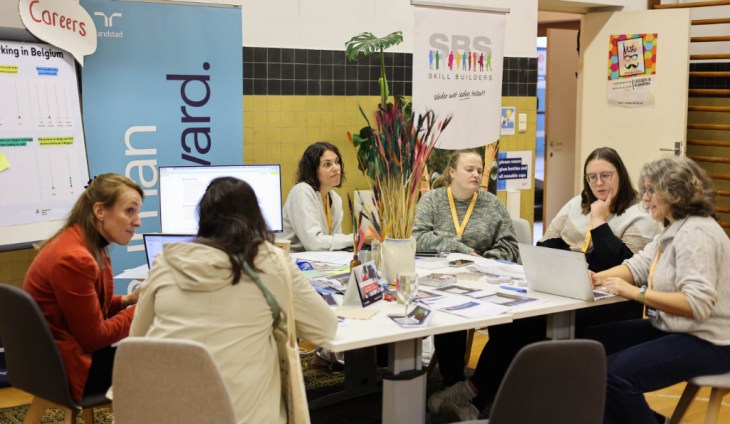Here are some actionable tips to help you get started:
Keep it Short
Your CV should be 1-2 A4 pages long. Focus on the top half as it makes the first impression on a screen. Avoid tiny margins and huge blocks of text and also check that it will print out well.
Use a Good Layout
Use columns, titles, and formatting to make your CV easy to skim-read. Bullet points are your friend—they help break up text and make key information stand out. (Check out the templates in Word for layout ideas or Canva for some creative formatting)
Include Personal Details and a Photo
Include essentials like your name, address, phone number, and email. Optionally in Belgium, you can add nationality, date of birth, and work permit status. A headshot photo is often appreciated but not mandatory; ensure it's recent and professional if you do include one.
Introduce Yourself with a Profile
Write a brief 2-3 sentence profile to give employers a quick overview of who you are and what you bring to the table. Don't repeat information that is already in your CV or cover letter, though!
Include All Relevant Work Experience
Include relevant experience from your home country too. Check out the STAR method to help you highlight key achievements and outcomes from your previous roles.
Address Gaps in Your Resume
Be upfront about any gaps in your employment history. Explain what you did during those periods, whether it was further education, traveling, or personal projects. Moving country brings lots of great skills that are applicable to the work environment, too!
Tailor Your CV for Each Application
Study the job description carefully and highlight how your skills, values, and experience match the role and the company’s objectives. Mirror their language (from their vacancy and website) where appropriate, but avoid copying directly.
Consider Language Skills
Apply in the language of the vacancy whenever possible, so apply in Dutch to a vacancy posted in Dutch. Include your language skills and your willingness to learn or improve.
Proofread Your Work
Typos and errors can leave a negative impression. Make sure your CV is error-free - ask a friend to read it and, ideally, a native speaker of the language you are applying in. (Grammarly or other spell checkers can be a great help, too!)
Apply Even If You Don't Meet Every Criterion
Job listings are often wish lists for companies, but it's rare for candidates to tick every single box. If you're unsure, reach out to the contact person listed on the vacancy for clarification.
Remember, your CV is your first impression, so make it count and make sure it is an authentic reflection of who you are.
Getting your CV out there
Good luck with your job search in Belgium! And don’t forget that we have a variety of workshops hosted by career coaches that can help you with your CV, networking skills, etc. Find all of our career workshops here.


